Freelancing – Making Money From Your Niche Skills
A recent report by freelancer.com shows a 41 percent year-over-year increase in freelancing – both in people hiring and those looking to become one – in the second quarter of 2020.
With the surging demand and popularity, now is as good a time as any to begin freelancing.
But although opportunities abound, there are things to keep in mind as you start and establish yourself.
In this episode of Start Yours, we'll hear from our former and current hosts, David and Aleisha, both of whom have not only extensive experience in freelancing but also in hiring freelancers, as they share their expertise and tips from both sides of the equation.
If you're looking to get started with freelancing, whether as a side hustle or as a full-time venture, you'll want to tune in to this value-filled episode.
We hope you'll consider subscribing to the podcast and don't forget to check out the Oberlo blog, where we have loads more information on entrepreneurship.
Got too much on your plate at the moment and prefer a summary? Here's a TL;DR version with seven valuable takeaways from our chat:
- Financial flexibility for a bit of cushion is important when you're just starting out because things may not pick up as quickly as you expect.
- Charging in a currency that's worth more than what you live off of is a great hack to help stretch your money a little further.
- Niche down and find out what you're really good at and what differentiates you from other freelancers.
- As a freelancer, you want to take the burden off of the person who's going to be paying you, not the other way around.
- If you're just starting out, have a bit of humility and swallow your pride. It's a good move to start cheap, ingrain yourself with somebody, and then work from there.
- Hijack as many tasks related to the job as possible. Freelance-hirers want to consolidate their efforts because there's no point in hiring two freelancers to do the job that one can do.
- When you come up with a figure and you've established yourself, stick to it and don't get hustled too much if you don't need it.
Start Yours is a podcast about ecommerce, dropshipping, and all things launching a business.
Join us as we meet entrepreneurs who have gone through the triumphs and headaches of running an online store, and learn how they managed to survive and thrive.



Freelancing Going Mainstream
Aleisha: David, we're both full-time workers. We are gainfully employed by Oberlo and happily employed. We have both had experiences in the past as freelancers, contract workers, people who have hired, and probably also been working on various websites like Fiverr and Upwork.
So we thought today might be a good way to share some of our experiences and hopefully help people if they're looking to hire people or do freelance work themselves and make it a little bit easier for them.
→ Click Here to Launch Your Online Business with Shopify
David: Yeah, and we talk a lot on this show about freelancing and about side hustles and various things that you can do to make money and earn a living that's not the nine-to-five 'cause I think one of the themes of Start Yours is the various ways that people go about not doing a normal job.
And we've both been in that situation ourselves, doing freelancing, trying to scrap things together, and then also been on the other side of the equation, where we're fielding offers from freelancers or having to go source work from people on the other side of the equation.
So yeah, so it's a way of making a living that we're both pretty familiar with from a few different angles, so yeah, it'll be fun to rap about that.
Aleisha: Yeah, and I'm really excited. I think we're in a position at the moment, and not even thinking about COVID and what it's been doing to people, and I'm sure we can talk about this as well, with remote working and trying to then utilize the skills that they have to then create maybe an alternative career or make extra money because work has been pretty scarce for a lot of people.
But it also has been so interesting to see, in the last two or three years, how much these positions, like freelance positions, have become really mainstream for people to say, "Oh, I'm a freelance graphic designer," or "I'm an editor," or "I got these great skills and I can make some cash off it." It's become quite normal now for people to be doing this.
But maybe five or ten years ago, it would have a lot of extra work to sell yourself rather than just go onto one of these websites and set up a profile and you're off to the races.
David: Yeah, the mainstream-ification of it has been nice, and so whatever stigma might have been attached to it, like you said, five or ten years ago, I think that has really been... It's at least not as strong anymore, if it exists at all.
And so if you look back, one thing that's been constant if you look back five or ten years ago versus today is that if you're gonna be doing freelancing, you need to have flexibility at the outset. Because I think, as you build your freelancing portfolio, you're gonna have more and more of that credibility that you're talking about... It's fine to have an entire career based off of freelancing, but it doesn't happen quickly all the time. And so this idea of...
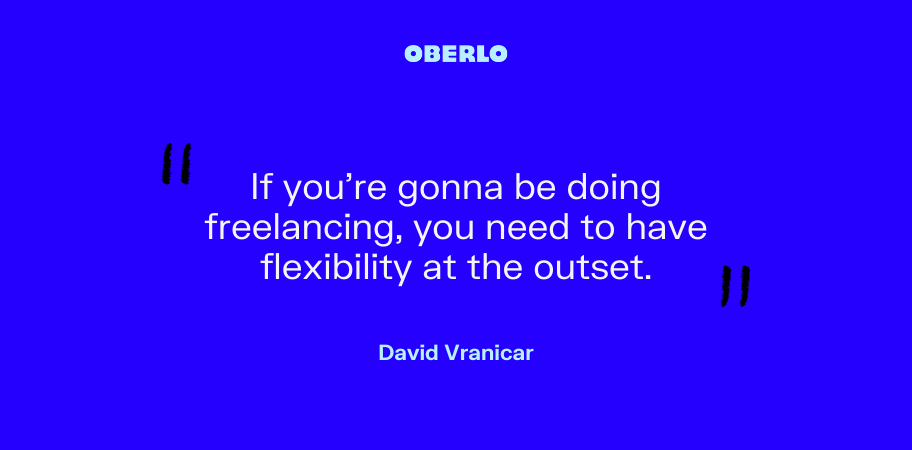
Aleisha: No.
Have Financial Flexibility Before You Start
David: Maintaining flexibility, especially financial flexibility, at the outset is super important. So for me, I actually started freelancing when I was teaching English in China. So this is an extreme way to stay solvent, but I had what amounted to a pretty cushy job doing that. It was like a two-day-a-week sort of thing over in China, and then I would do freelance work that would get paid in US dollars, and so this... A little bit of a hack, getting the currency... You're getting paid in a currency that's much stronger than the one that you're actually living with day-to-day.
And this was something that we've heard... We did a podcast in the spring with Amanda Gaid, who's written a lot for Oberlo and she wrote a book about being a digital nomad for Oberlo, a great, great ebook that you can download from oberlo.com.
But this is one of the things that she talked about as well 'cause when we caught up with her, she was in Mexico. And so she has clients around the world who are paying her in currencies stronger than the one that she actually has to live off of.
So, you know, a cheeky little hack that you can pull to stretch your money and make it go a little further.
You might not be making bank in US dollars. But then when you actually think about what you're gonna be spending it on, it can be worth a little bit more if you're in a situation like that. And then, of course, stuff like debt, this is a topic that's come up a lot on the show as well. We actually did a whole episode about student debt and how this just really handcuffs you.
And this goes for dropshippers or for ecommerce entrepreneurs and definitely for freelancers. If you are saddled with a bunch of debt, it just heightens the stress around everything involving money, and then you have a lower chance to take risks, you have more urgency around accumulating money, whereas if you didn't have the debt or if you didn't have a mortgage or whatever, whatever you're not saddled with, it kind of liberates you to take chances and to be a little bit more patient as you build things, whatever it is you're building.
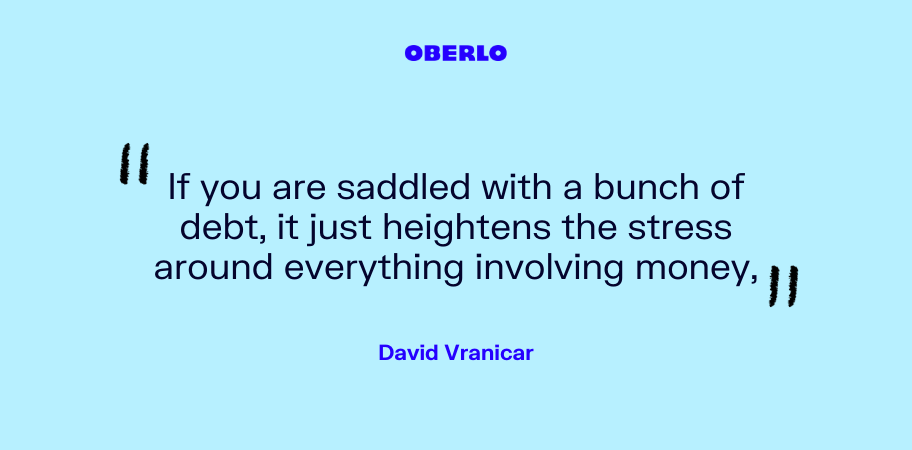
Aleisha: So David, do you... When you were freelancing, and as you said, you started overseas, and it's great because you obviously had the skills to do it. But how long did it take you to get it happening where you were actually making reasonable money, or side hustle money on top of what you were doing and actually get that kicking and you actually felt like, "Hey, this is worth my while"?
David: Months and months. Actually, if you start the clock when I first started freelancing, it would have been you know more than a year from my first freelance check to when I was actually getting quasi-comfortable with it.
I mean, it was really... And yeah, maybe other people are better than I was and it wouldn't take so long. But it can take a little while, and that's the reason that I would just really stress this idea of flexibility because it's something that's going to...
You can really make or break your chances to do this 'cause if you have to, have to, have to make money like this month or next month, then freelancing is gonna be a lot more complicated.
If you're like me and you have... You're getting paid some chunk of change to teach English, and then you have a bunch of time during the week to pester people about freelancing, then it's a blanket that you can throw over yourself to not have to worry so much about any sort of urgent needs. So I was kind of liberated from that real stress that it had to happen now.
Aleisha: And that's a good way, I suppose, with anything, and we talk about it a lot on the show that if you are looking to take a sort of step into a different enterprise or startup business, that it's often something that you should maybe consider doing while you're working a full-time job, or while you’re doing a paying job and then dip your toe a little bit and see if it's right for you without having to go and quit jobs and make that leap.
And we're all in for leaps, but sometimes it can be risky if you haven't had that establishing time as well, so this is connected to it as well.
David: Yeah, for sure. And another thing that we've heard about from guests in this show, like Ben Waugh for example, who was... He was on talking about photography a couple of months ago. He grinded away at a very normal stable job, and then as his soul turned to dust, he realized he needed to do something else.
And so he was living in Australia, he quit that job, moved to North America, and rented a van. And so he lived out of a van. And this is another extreme example of reducing expenses, but he said, "Okay, I have enough money to... I can get to North America. I can stay fed. I'll be fine for a while with what I already have." And then you know slash your expenses down to virtually nothing by literally not having a home. And now he's doing great. It's also... It's a cute love story. He fell in love with another van tenant over there.
Aleisha: Yeah.
David: So he's kicking ass with his freelancing. He has some big-name clients and some beautiful stuff. He actually created a course for Oberlo, so he's working with a lot of cool companies doing a lot of cool stuff. And it was all enabled by his ability to stay flexible and not have to scramble right away to start making big money. He built up a portfolio, he built up credibility as he broke away from the 9:00 to 5:00.
Finding Your Niche and Pitching It
Aleisha: It's interesting that when we were talking about doing this episode, the people that I've been looking at that I've worked with as a store owner, 'cause I've hired quite a few freelancers, and then also I've freelanced via Upwork and Fiverr, just the two websites I worked on, but I know there are a bunch more.
But it's sort of interesting to see what's successful and what's not, and it really comes down to a similar sort of thing when you're running a store. It's like niching down and finding out what you're really good at, and what makes you different from other people that are on those sites.
Because if you just say graphic design, I mean, there are 50 million other people saying that they're graphic designers. But maybe you're really good at fonts or you've got a specific skill set that other people might not have. That, for me, was such a big space maker for me to do... I was doing voice-overs on Fiverr, I did so many. I was really good at the on-hold stuff.
And my niche was obviously Australian accent, but I was quite good at sounding young and perky, and I got a lot of American clients 'cause they thought that the Australian accent was fun, and I don't know, I did on-hold...
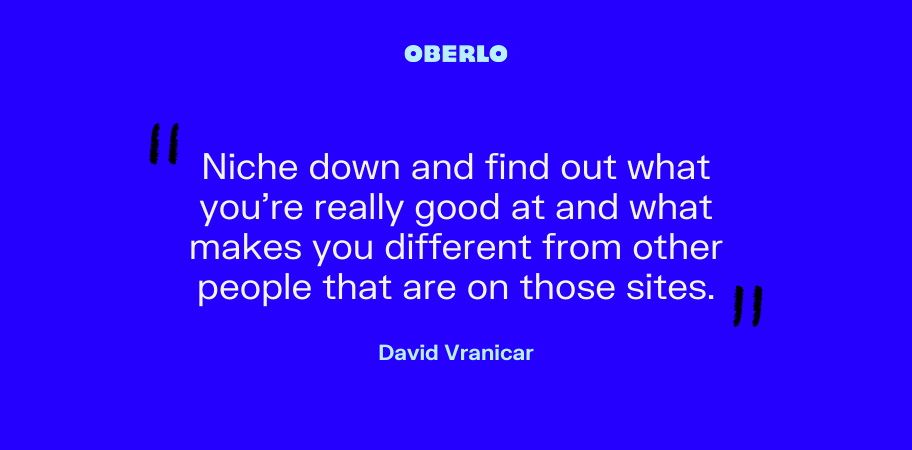
David: They thought you were British probably and thought it sounded sophisticated.
Aleisha: Well, I do British as well, so don't worry, it's all there. But I did all of this stuff that sometimes made me cringe, but actually, it was good side hustle money and it paid for holidays and extra weekends away and stuff on top of my day job.
But it became something that I did quite often and once I built up the niche, I was getting lots of requests that it probably took up more time than I had originally intended. But it was good to have that specific skill set that wasn't just, “I do voices.” It was, "Okay, I'm an Australian voice-over actor who does on-hold calls and explainer videos.
They were my two niche things. And it worked really well 'cause I knew exactly what I was doing when it came to doing the reads, they knew what they were going to get.
And I didn't offer too many things, so there wasn't as much choice for the customer, which was good for me.
David: Yeah, for sure. This idea of niching down that I've seen being on the receiving end of freelancer submissions...
So actually, I've looked at this before we hopped on, and a good example of not being specific is this note that I got on LinkedIn and it says, "I'm a veteran high tech writer with a PhD in research, background in journalism, and I've written for companies that include Microsoft, Uber, and Yale's law school."
And I can just tell you, if you're trying to pitch people in writing for them... I don't know what to do with that pitch that the person just gave me. They're positioning themselves as a researcher with a PhD, then they're talking about law school, they talk about journalism. There is a mention of tech, which I guess is relevant for Oberlo. But it was just kind of all over the place, and then that LinkedIn profile was similarly just scattered in every sector of every niche that you could imagine.
If you can kind of claim something as your own, I think that that's a huge deal.
Because nobody that you're gonna be pitching, nobody that you're talking to is not going to be a specific expert. If you wanna write for a magazine, that's gonna be a magazine about something specific. If you wanna do product photos for a company, the company is gonna have its own category or its own style that they wanna specialize in.
And so if you kind of say, “Hey, I'm a jack of all trades. What can I do for you?” That's not what people who are receiving freelance pitches wanna hear.
They want you to tell them what you're gonna do for them.
As opposed to, “What can I do with this PhD journal background? What extra work can I take on to make this person have a role for us?”
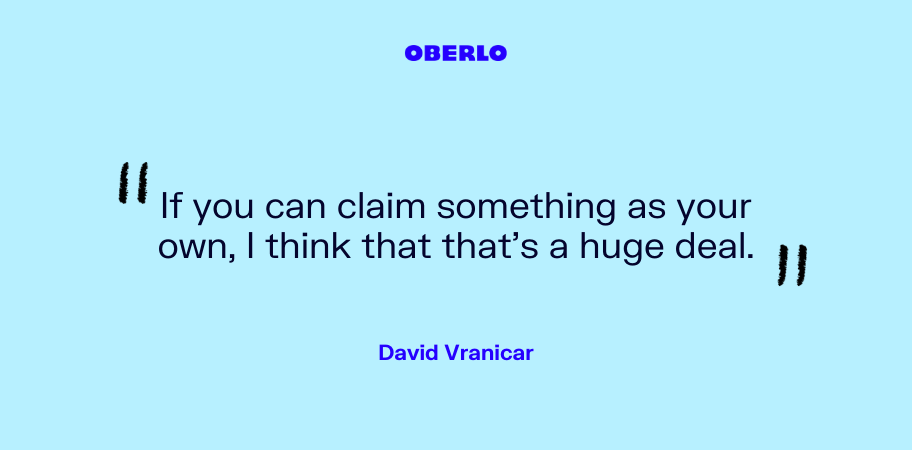
Aleisha: Yeah, make it easy. And I know we get lots of pitches for the podcast, and sometimes I read them and I think, “Gosh, I really want to learn more about what you have to say.” But they don't give very much information, it's just like, “I think I'd be a great guest on the show. See you soon.”
And then you sort of go, “Oh, but why... Tell us, tell us specifically why you think it'd be great.” And it's exactly the same thing with work as well, you've got to pick the attention quickly, keep it, and then obviously if people are interested, they're gonna get back in touch without having to give them a job on top of obviously trying to give to them the job of hiring you.
Aim To Lighten the Load
David: Yeah, for sure. And the idea of work reduction, I think is just massively important that they... Nobody... 'cause working with freelancers. As I did not realize this when I was freelancing, I've come to learn it.
It can really bog things down 'cause they're not gonna be in the same Slack, for example, that you use with your colleagues, the documents might not live in the same place, so there's just...
There are a lot of variables that get introduced when you introduce freelancers.
And so anything a freelancer could do to remove that friction and be really communicative, be really clear and concise, and obviously deadlines and quality, that would go without mentioning. But just anything to take the burden off of the person who's gonna be paying you.
And one example of this that I ran into recently, we were working with a freelancer who submitted some written content, and well one of the images that was submitted with it was pretty crap. So I had to bring this up and say, “Hey, could you edit this and change this image?” So that was... That's fine. I guess I kind of assumed that I'm going to absorb some level of that. But then the note that came back was, “I couldn't find a better image. Like we'd have to use this one.”
Aleisha: Wow.
David: And that's just not like nobody... She'll never work with us again, and I guess this idea that, “Oh, I'm not gonna do that, go the extra mile for you. Here's what I have. Here's what you get. We're done,” especially for what I would consider a pretty reasonable request.
It was like a non-starter to make this fix that I asked for, and so that's an example of compounding the work on the part of the person who's hiring the freelancer. And that's the exact opposite of what you should be trying to do.
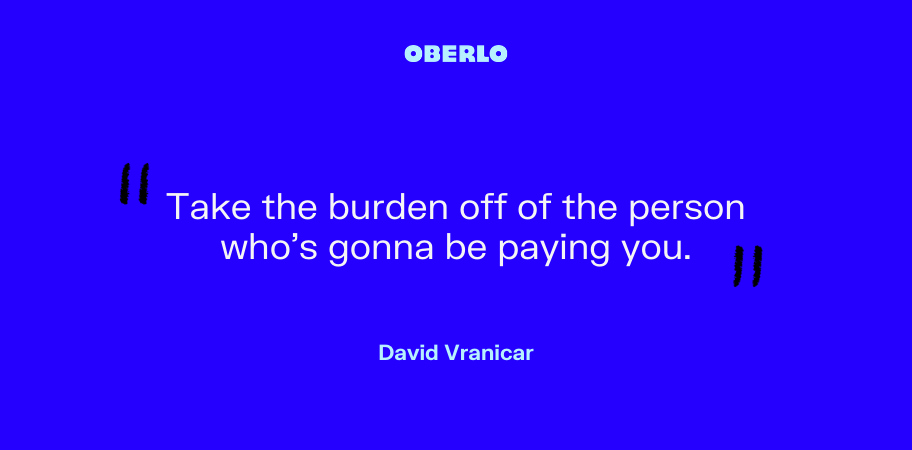
Aleisha: It seems a strange move to then write back and be combative like that when this is a clear door or a pathway to getting more work, so... Yeah, not a great move from that freelancer. Sucks for them.
David: Yeah, yeah.
Pricing Your Services
Aleisha: Tell me a little bit about your experiences, and this is from both a worker and as an employer about money and looking at the cost per job, and obviously we're talking quite freely here... Depending on the gig and how long people are working for and what you're asking of them, this is going to be very, very changeable.
But looking at your experiences from freelancing, did you start really cheap or do you aim high and only look for sort of the higher-end clientele that can pay the higher fees? I don't mean higher end like posh, but people that are willing to sort of spend more money. How did you work at your pricing structure when you first started?
David: No, I would... I was cheap, cheap as they come at the beginning. This is maybe why it took me so long to kind of get my feet under me. But I also think that it's one of the reasons that I eventually got my feet under me.
And so I think that it's a good move to start cheap, ingrain yourself with somebody, and then work from there.
I think that the odds of that are better than starting high and then maybe, maybe, maybe latching on and then scaling up from there.
So I was looking at some of the freelance pitches I did that were buried in my inbox before we hopped on and I got I think this exchange that is kind of indicative of what my life was like back then.
So I pitched this website and I said, “Hey, I can write something for you about this thing.” It had to do with Germany. And I was in Germany, so it just kinda made sense, I thought... And the guy wrote back and he said, “We'll pay you, not much, but we'll pay you $150 if it's good, $4 if it sucks.”
So I heard that, and I thought, “Okay, sure.” I know it's gonna be good, and $150 is not anything that I can... I'm not gonna retire off of $150 installments, but what it does is that it gave me a by-line... And by the way, the thing was good, so I got the $150, so...
Aleisha: Oh good on you, I was gonna say, I hope you got the $150.
David: I got it, I got it.
Aleisha: I know your work, you're pretty good at doing things, so I would assume the $150 was coming your way.
David: Yeah, no, I busted my ass for that $150, and the $150 is only... I mean, that's exactly how valuable it was, it was $150. But the knock-on effects of that were I had a new by-line on a new publication, I had a new thing, a new feather in my cap that I could take to future outlets, and it just kind of... It was some credibility.
So I think that if you can swallow your pride, and again, if you have the kind of financial flexibility and the humility to just kind of do really cheap dirty stuff while you build things up, then you can look at $150 and say, "Okay, that'll work," I can make that work, and then just kind of trust that it's gonna get better from there.
And we talk about that same mindset with ecommerce and with dropshipping. Sometimes you have to swallow money on ads, for example, on the presumption that you're gonna learn and you're gonna get better, and eventually the paydays will come.
And so if you can just kind of spiritually accept a little bit of poorness, for lack of a better word, at the beginning, with a plan to build, then I think that's a better way to start than to come in guns blazing and say, "I'm a four-figure per blog post writer, like, let me know what I can do."
I think scrapping for the $150 by-line is good. And then there are other people who would say the same things. We've worked with a writer, Tim Denning, an excellent writer, also an Aussie, Aleisha, you'd be happy to know.
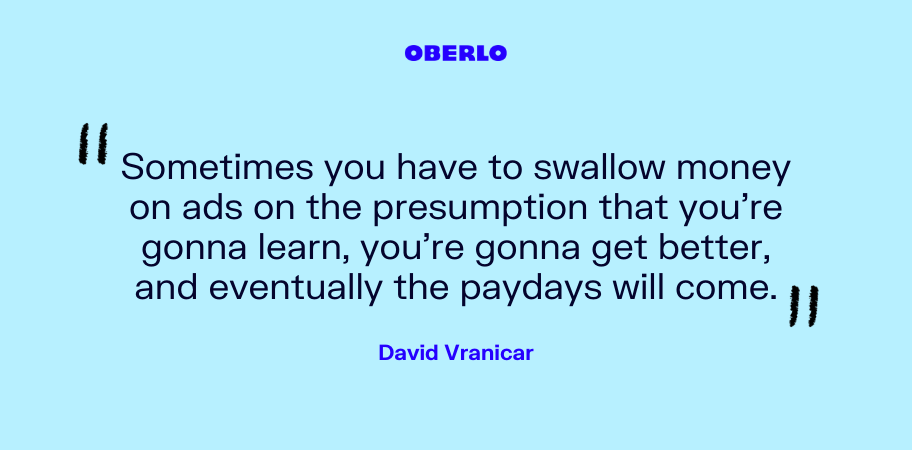
Aleisha: Oh, go Tim. We're probably best... We probably know each other. Yeah.
David: Yeah, so he's written some awesome stuff for us. And one thing he wrote for Medium, not for Oberlo, was titled, “Give Away 99% of your Best Writing for Free.” And the article goes on to talk about this very mindset, where you need to build credibility and build up by-lines, build up clients, etcetera, etcetera, for free, or for dirt cheap, in my case, and then you can expect things to happen.
And so I think that there's a very natural tendency to say like, "Boy, I can't just be... I can't be giving stuff away because... " as my dad would say,
"If the milk's for free, why buy the cow?"
But the benefits of that will manifest if you just keep your nose to the ground.
And then there was also another guest we had on the podcast, John Lee Dumas, he has his own podcast, awesome podcast, Entrepreneurs on Fire, and he had a great exchange with this guy named John Nemo. And maybe we could just play that 'cause I think this is a great example of what coming in cheap or coming in free can do for you.
John Lee Dumas: So when John reached out to me and he said, "Hey, JLD, love what you have going on online, your LinkedIn profile could use a little upgrade. Let me do that for you for free. This is what I do, this is who I've... This is who other LinkedIn profiles I've worked on, this is something I wanna gift to you."
And I said, "Wow, number one, thank you for all the kind words. Number two, like, yes, I'm very aware that my LinkedIn profile needs some loving because it's just not one of my main focuses. So have at it, brother, here's the password. Everything."
I don't even think that we had talked and I had already given you all of my social media passwords, and you logged in and you went to town. And next thing I knew, I logged in, it was just like somebody had given me a brand new car in my parking lot, 'cause now my LinkedIn profile was something that I was proud of, and I actually started talking about it for the first time in a long time.
And you did it for free, and you did it as a gift, and you did it without being asked, and you did it to be a person of value. Like if you had come to me and even said, "Hey John, I can do this for you for 695 bucks,” guess what? It would have been worth $695 for me, but I get pitched every day on a million things, and it just would have been another pitch that would have gone in the trash and that would have ended it there.
But Fire Nation, John said, "You know what, my time is valuable, my skills are valuable, my expertise is valuable. I'm gonna become a person of value for Chris Brogan, for John Lee Dumas, and that when the opportunity arises, then maybe there will be value coming back my way, maybe there won't, but I'm willing to put in the time, effort, and energy to make this happen."
Fire Nation, you come to me all the time, you say, "How do I get the ball rolling? How do I get initial momentum?" John Nemo is a great example of that.
So John, I know this is your interview, pardon my rant, but I just think you're such a great example of what it takes to get the initial momentum going in this world. So congrats, brother.
David: So yeah, that's just another example of how some scrappiness at the beginning can lead to bigger things down the road. Because that free work offer has now turned into a guest placement on a massive podcast and God knows how much promotion, just because it was a relationship that John Nemo was able to cultivate.
Aim To Get Recurring Clients
Aleisha: Yeah, and I think coming back to what we always talk about with dropshipping and also ecommerce is the return customer, the return client that a lot of people sort of forget about when they're trying to just make sales, that if you have a long game with your business, and also that looks at the idea of freelancing as well.
If you can have that repeat customer that comes back and wants to use your services and you can make those relationships, then that's easier money in the long run when you don't have to go and hustle as much, when you know you've done a good job and someone comes back and says, "Hey, David, let's go for another piece of great content," without having to then go and write 50 introduction emails over and over again.
David: Yeah, consolidation is something that every hirer of freelancers wants to do. Nobody will get two freelancers to do the job that one could do, and nobody will get four to do the job that three could do.
There's no benefit for somebody on the hiring end to spread out the work.
Like I was saying earlier, it's more emails, it's more documents in more locations. And so the idea of getting in good with somebody is incredibly valuable. And I think it's a great analogy to say that this is... It's kind of like a repeat customer. This repeat business as a freelancer is such a big deal.
And I think in addition to being cheap, another way to do that is to figure out what the person on the other end really needs. And so if you wanna write for a blog, for example, then maybe you write an article and you say that you can upload it, or you write the article and then you have 5,000 Twitter followers and you're gonna promote it.
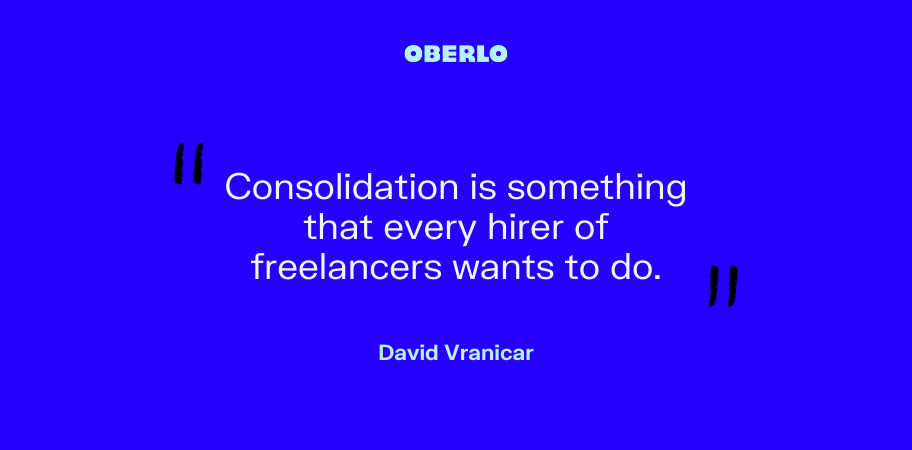
Aleisha: That's good.
David: So this consolidation of tasks… It's so sexy for anybody who's gonna be thinking about hiring a freelancer. Because if they have to hire a freelancer to write something, and a freelancer to upload it, and somebody else is gonna be promoting it, and then the thing just spirals out of control sometimes.
And so if you can hijack as many tasks related to the thing as possible, people will love that and people will pay for it.
It's not like you would do five things and get paid for one. You could have the article price, then the article plus promotion price, etcetera. So there are different things that you can do to make yourself more valuable.
And then, as I said, nobody's looking to work with extra freelancers. So I think that consistent, repeat, familiar work is always the name of the game for people who are engaging with freelancers.
Aleisha: Yeah, and I think with my experience with the voice-overs when I started to get enough work, and again, I wasn't making full-time money off it, and maybe I could have if I had the time and the energy to put into that. But I was also working a full-time job at the time, so it was... I had my limits.
David: Hustler.
Aleisha: And I remember getting to this... Always hustling, David, always hustling. But I remember getting to my... I got to a point where I realized I would get people that would write to me and say, "Hi, can you do this for $25 less?"
I wasn't making heaps of money anyway. And there was a point where I started to get really annoyed with people trying to barter or knock me down when I had, you know, 500 positive reviews, I had really good feedback, and I was very reasonably priced, I wasn't crazy expensive.
And I had a little note that I just would cut and paste saying, "Read my reviews, this is my price, I don't negotiate. Thanks so much. Come back to me if you'd like to work with me."
And it was so interesting to see how people would either return and say, "Great. Just had to ask," and I would say, "That's fine. It's always... Good for you for being ballsy." But you would also lose the other people. And for me, it was a really good learning experience when I thought, “Well, I don't wanna work with people that are gonna pay $5 when I'm just worth $45,” or whatever it was that they wanted to do.
Because to me, they were then the people that would come back and be jerks, or be really picky about my end product when actually I would always give 100 percent of my effort to it. So I think it's also important to remember whether you are hiring someone, or you are the person that is putting yourself out there, that when you do come up with a figure and you've established yourself, then stick to it, and don't get hustled too much if you don't need it, basically.
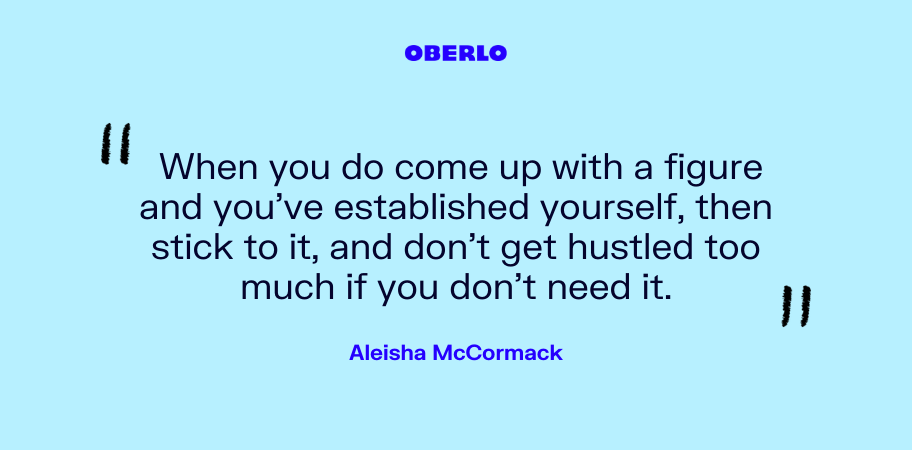
David: Yeah, for sure. And I've been talking about the plus sides of being cheap. But after you get the reviews and after you get the clients, then you can draw a line in the sand at some point. So freelancing shouldn't be... And nobody should think of it as permanent discount work, that's not what freelancers are signing up for.
It should be cutting your teeth, doing some BS maybe at the beginning. But then once you get to the sort of spot that you're talking about where you have the reviews, you have the clients, then yeah, definitely say, "I might not be your employee, but I'm not doing that."
Where To Advertise Your Services
Aleisha: Do you have any recommendations if people are looking to jump into the freelancing game. I've mentioned Upwork and Fiverr, I know there are more freelance websites.
Do you have any up your sleeve that you would recommend? And should you be posting on multiple sites or should you just stick with one of the sites and just go hard in one of the various side hustle sites?
David: I say be shameless. So I would post anywhere and everywhere, and then I also think that just reaching out to people is good, and there's gonna be so many non-responses and so many disinterested responses, and just tumble-weeds.
If you just saturate things and you write to everybody you can think of, don't be selective.
Just if there's any connection that you think... Any intersection between your skillset and what somebody might want, then just go for it. And then you wouldn't want the pitch to be completely templated. You'd wanna include some sort of customization. Address the person by their name, or mention the company that they work for, it can't be a complete carbon copy company to company and person to person, but you can make...
Aleisha: That's a biggie.
David: Yeah, it is. It's also, it's not that hard. If you have a blank at the end of the first paragraph, for example, that's the spot where you customize it per recipient. So you can definitely get 80 percent of results with 20 percent of the effort here if you just pay a little bit of attention to that.
But I think that that's a really good way to do it too, and so instead of just relying on those platforms, or relying on inbound interest being generated from searches on Fiverr and Upwork, you can also do the outreach yourself, and especially once you get to the point where you feel like you have some expertise.
So if you've written for a handful of publications in a certain niche, then you can expand into other parts of that niche. Or, you were talking about doing the voice-overs for certain geographies, at some point you can say, “This is where I'm really strong and I'm just gonna start pounding on doors of other people in this area.”
So that's the one thing, I think that the worst-case scenario is that you get ignored, the next worst case is that you get rejected, but the upside to those is good, and you really don't need a ton of clients to find yourself in a really good situation.

Aleisha: No.
David: And this is one of the things that we talked about with Amanda. We were talking about in the context of digital nomad-ness, and do you need to rack up as many clients as possible to have some sort of back-up.
And she was saying that it's her experience, as somebody who's done this for years and years and years from all over the world, that just as the hiring managers wanna consolidate the number of freelancers they work with, it's fine if the freelancers are consolidating going the other way.
And if you can just double down on the best and the best-paying clients, just do that.
And then you can avoid the rat race of needing to get the Upwork or the Fiverr or whatever. 'Cause the benefits of having secure work, I think, are gonna be huge.
Aleisha: Oh yeah, and I think it's a good testament to the wonderful people we work with at Oberlo. We work with a number of freelancers who are pros and come back week after week and just do the job that they are asked of and then exceed it.
And I suppose that's what everyone's looking for. Whether you are the person doing the job or the person hiring, you just wanna be the best at what you're doing and make people stick around, so you just get that money. We love the money.
David: Indeed, yeah. Everybody wins in that scenario that you just laid out, so the... If freelancers aren't scouring for clients and if the hiring people aren't scouring for freelancers and everybody is just kind of cozied up with some good reliable partners, that's the best situation for everybody.
Aleisha: Look at us, aren't we the experts of our own show? Well, I'm glad I'm not freelancing in a way because now I get to work with the Oberlo team. But I'm also glad I had the experiences of freelancing 'cause I think it actually has helped me gain the experience to then hire people, as well. So being on both sides of the fence has been really good for my career.
So I think if you haven't done it before and you've got a skill that you can get out there and hustle and earn a bit of extra money, that might turn into a full-time gig for you. Or it could just be something, as you said, to pay off some student debt or get through college, or get through the summer holidays or whatever.
Everyone has a skill that they can sell. It's just a matter of how you market it and get it out there.
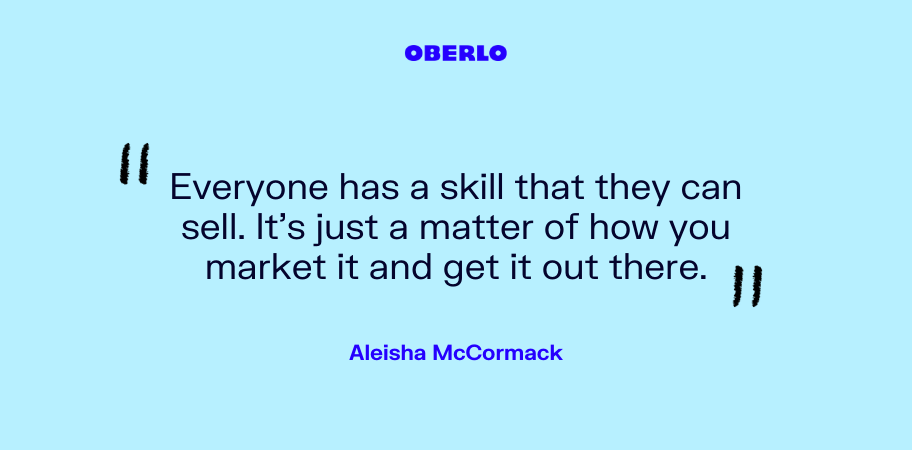
David: Yeah, and I did a lot of freelancing at a job that I just absolutely hated. And so I would go into the office and work with an awful, awful boss, who just berated her dog all day. The dog was in the office too, so it was just a toxic, toxic thing. But I would sit there and freelance for other people. So it's a way to stay sane as well as to earn money.
And we talked about people going from nine-to-five to freelancing, like Ben, for example, once you make that leap, it's not like it's impossible to go back. While you're freelancing, you're gonna be piling up lots of credibility, bolstering work, and you're gonna learn a lot, you're gonna meet cool people, make new connections. And so if you make that leap, you find out that like, “Hey, this isn't what I thought it would be,” then you can always go back.
But I think that... We've talked on this show with a lot of people who go ahead and cut ties with the thing that... Their nine-to-five job, it just doesn't quite feel right, and...
Aleisha: Yeah.
David: They don't regret it 'cause there's a lot that they do that they wouldn't have been able to otherwise, and if they need to go back, they can go back later.
Aleisha: Yeah, it's all about freedom, isn't it? And I think that seems to be a really big theme throughout the past three seasons of Start Yours, is that we talk to people who recognize the benefits of running their own thing or starting their own business that provides them with the freedom to travel or go and see friends or do whatever they want, but also pick and choose when they're going to be working, which is the dream.
David: Yeah.
Aleisha: Thanks for being on the show, David.
David: Thank you, Aleisha. Great.


